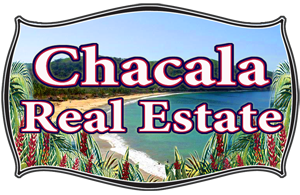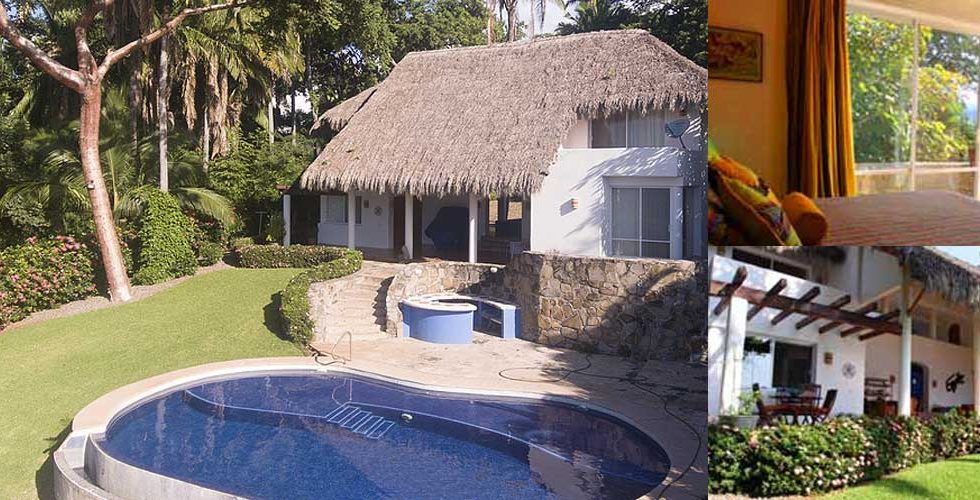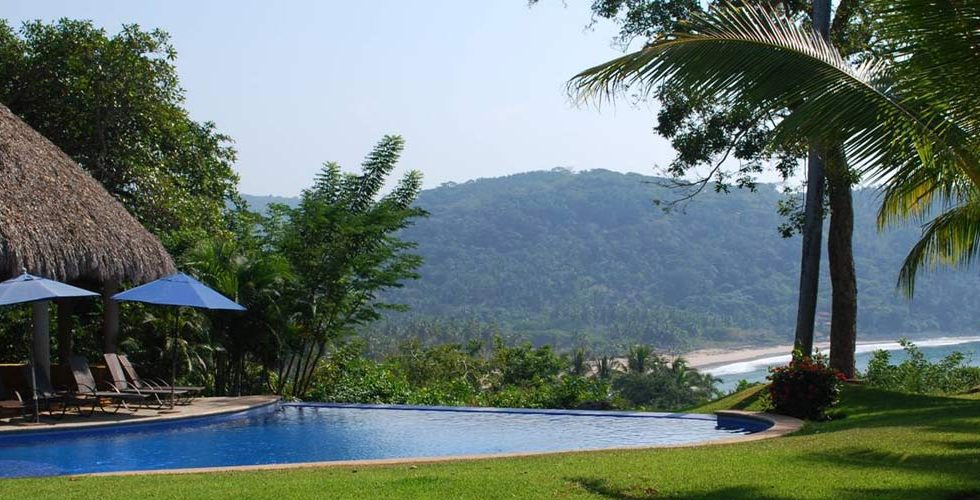Bank Trusts & The Fideicomiso
Q: Is there more then one way to own coastal land in Mexico ?
A: There are two ways for foreigners to hold title to property in Mexico. They are a Fideicomiso ( “Trust”) and a Mexican Corporation wherein the Foreigner is a 49% partner.
Q: What is a trust and who needs a trust ownership?
A: Since 1973 a constitutional amendment known as the Foreign Investment Law has allowed non-Mexicans to acquire Restricted Zone land (30 Miles inland from coast or Mexican borders) through a “trust” called Fideicomiso (FEE-DAY-E-CO-ME-SO), established with a Mexican Bank. This trust assures the foreign buyer of all right and privileges of ownership, and is needed to own properties which fall into the “restricted zone” by article 27 of the 1917 Mexican Constitution. As of 1994 the Foreign Investment Law dictates that the trust be established for a term of 50 years, renewable at any time during its existence by simple application.
Q: How does the trust work?
A: The bank known as the “trustee” holds the Deed for the purchaser. This property is not part of the Bank’s assets and cannot be subject to a lien or attached to bank obligations. While the bank is the technical owner of the property, they have a statutory obligation to follow the beneficiary’s instructions concerning the property.
Q: How long does the trust last?
A: Trusts are granted and now extended in 50 years periods. The original periods were 30 years and if you purchase property currently held in a trust, a new 50 year period can be established or the existing trust can be assigned. Trusts are renewable at any time by simple application.
Q: How much are trustee fees?
A: The costs to establish a fideicomiso trust vary from bank to bank. The fees are based on a fixed rate per task but the standard rate is 6% of the purchase price for setup and then $550 to $600 per year for management of the trust. These fees are paid directly to the bank that has your trust.
Q: How are these trusts established?
A: Fideicomiso trusts are established by a Notary Public following the receipt of a permit by the Ministry of Foreign Affairs. There are a large number of foreign-owned properties in Mexico , especially Cancun standard forms are utilized by local Notary Public.
Q: In the event the holding Bank should ever fail, be bought by an unauthorized Bank, etc., what happens to the Fideicomiso?
A: The Fideicomiso will be transferred to another authorized Bank. The Bank does not own the Fideicomiso, you do!
Q: What rights does the beneficiary have to the property?
A: The beneficiary has all ownership rights to the property and may sell, lease, mortgage, pass to heirs or do any other legal act with the property. The beneficiary may transfer or assign his beneficial interest to any person and keep the profits from the sale of the property subject to applicable tax laws and expenses for the sale. Property held under a trust can be passed on to heirs and there is no inheritance tax. This is accomplished by naming them as substitute beneficiaries in the event of your death.
Q: Can I legally own property without a bank trust if I have an FM2?
A: No, the only way a foreigner can own property in Mexico without a bank trust is to become a Mexican citizen or to have a Mexican Corporation.
Q: How are Title Searches done and is there U.S. title insurance available?
A: Yes , investors are now protected by U.S. title insurance (if the buyer so chooses), there are bonded escrow accounts available, and extensive title searches are standard to any purchase. The title and title search document is called an Escritura.
Q: Can the Mexican Government confiscate my land?
A: Foreigners often worry about their land being expropriated by the Mexican government. Under the North American Free Trade Agreement, NAFTA, Mexico may not directly, or indirectly, expropriate property except for a public purpose. This is the same as “Eminent Domain” in the U.S. Where it is necessary to expropriate land, swift and fair market compensation must be paid, together with accrued interest. If a property is owned / leased via a Bank Trust it is not Ejido or public purpose loan so an not be expropriated by the Mexican government.
OTHER KEY ISSUES AND QUESTIONS
Q: What is a Notario Publico and what is their role in property transfers in Mexico?
A: A Notario Publico is an appointed official, the highest legal official in the country, a lawyer, who oversee all monetary transactions.
Q: What are Capital gains Laws in Mexico?
A: The capital gains tax currently is 28%. Capital Gains may be avoided if the new home can be determined as a primary residence and can be proven as lived in for 6 months, however, the laws may soon be revised. Most foreign buyers are not speculating or “flipping” and plan to pass along the property to their heirs.
Q: What are property taxes in Mexico?
A: Property taxes are extremely low in Mexico compared to U.S. and Canada. For example, a half million dollar home will run you about $500 dollars per year.
EJIDO (COMMUNITY) LAND vs. PRIVATISED LAND
Q: What is Ejido Land?
A: Similar in concept to a “Co-op”, Ejido land is held in common by a group consisting of Ejidarto members with each member having a portion of the overall property in his or her name.
Q: How do I know if the Ejido Land in question has been properly privatized for sale?
A: A bank will not enter a Fideicomiso Trust on Ejido land as there is no individual title on Ejido land. All individual title has an Escritura document attached with it’s corresponding title and title search information.



